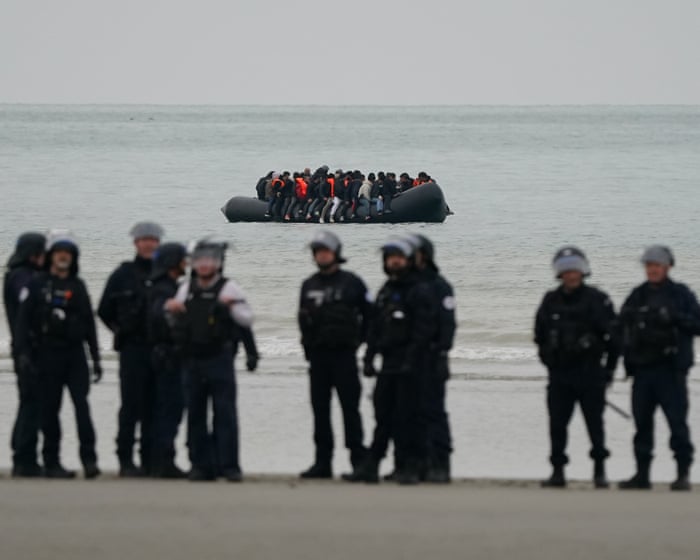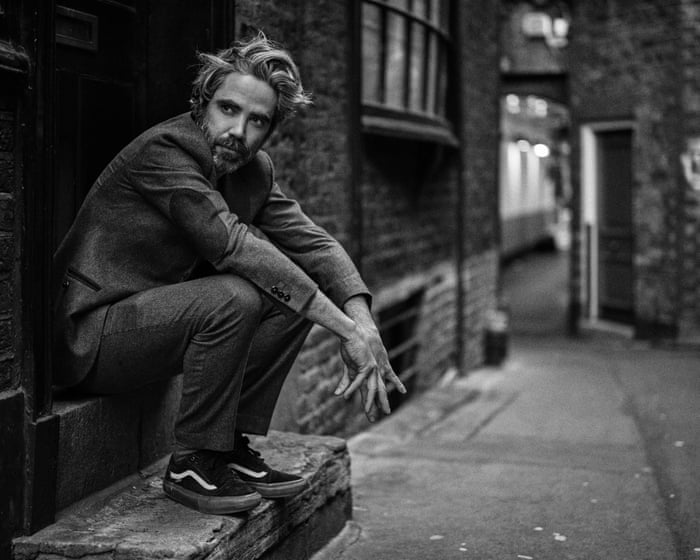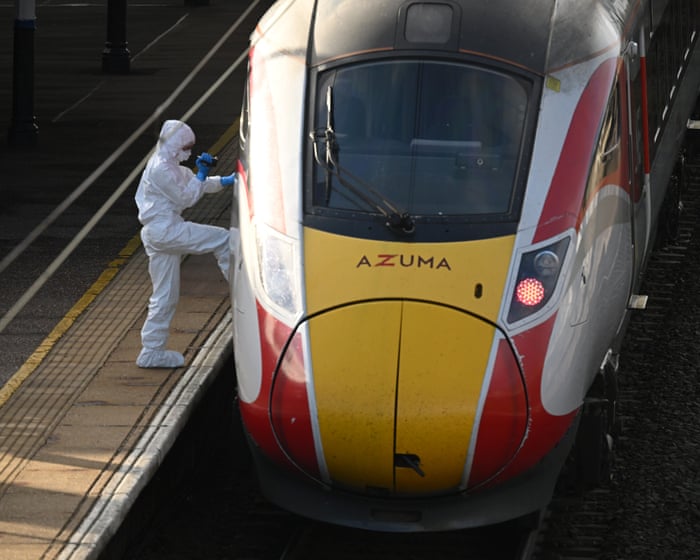The UK’s border chief has expressed frustration that French authorities have not implemented tactics to puncture and disable boats carrying asylum seekers in shallow waters. Martin Hewitt, the Home Office’s border security commander, told Members of Parliament that frequent changes in the French government have created a “political backdrop” hindering the adoption of a tactic considered crucial to countering “taxi boats” used for smuggling people to the UK.
Speaking before the Commons’ home affairs select committee, Hewitt described it as “frustrating” that more interventionist measures haven’t been deployed against boats that pick up passengers from shallow waters off French beaches.
In June, the French cabinet committed to reinterpret maritime law to allow police to intercept migrant boats at sea for the first time—within 300 meters of the coast. Government insiders hailed this as a “gamechanger” for stopping crossings, which have exceeded 32,000 this year. However, French police later stated they wouldn’t act on these orders without guarantees of protection, proper training, and adequate equipment.
When asked why the tactic hasn’t been implemented and whether France’s political instability played a role, Hewitt said he’s working closely with France’s senior maritime official but continues to find the process frustrating. “I met with him in Paris three weeks ago to emphasize how important this maritime tactic is for dealing with the taxi boat situation,” he explained. “President Macron also mentioned this during July’s summit with the British Prime Minister. So it’s frustrating that it’s taking this long. The political instability has clearly been a factor.”
Hewitt noted that Channel deaths reached “horrific” numbers last winter when desperate people stormed boats without paying. The International Organisation for Migration reported 2024 as the deadliest year on record for Channel crossings, with at least 82 fatalities including 14 children, plus another 20 suspected deaths and eight others who died while attempting to cross.
The origins of asylum seekers have shifted, Hewitt observed, with many coming from Eritrea, Ethiopia, Sudan, and Somalia last autumn and winter. “This had several impacts,” he said, “particularly during the period when fatalities rose significantly. For a while, smugglers lost some control, and migrants—especially from Eritrea and Ethiopia—were rushing onto boats without having paid.”
Committee chair Karen Bradley revealed that only 12 officials are working on the government’s “one in, one out” agreement to detain Channel asylum claimants and return them to France, in exchange for accepting a similar number of asylum seekers with family ties to the UK. She contrasted this with over 1,000 officials previously working on the Rwanda deal.
Hewitt responded that the new arrangement involves many more staff across enforcement and immigration departments, and that dismantling smuggling networks will take time. “There’s been a previous belief that one or two solutions would solve this,” he stated. “I firmly disagree. This is established criminality—incredibly profitable—and growing numbers of people are considering migration.”So I don’t think this was ever going to be solved very quickly.
Frequently Asked Questions
Of course Here is a list of FAQs about the UK border chiefs frustration with small boat crossings designed to be clear concise and natural
BeginnerLevel Questions
1 What are the small boat crossings everyone is talking about
These are journeys made by migrants across the English Channel in small often unseaworthy and overcrowded boats like inflatable dinghies They typically depart from the northern coast of France aiming to reach the UK
2 Why is the UK border chief frustrated with France
The UK border chief is frustrated because despite the UK giving France hundreds of millions of pounds to help stop the boats the crossings are continuing at a high rate The feeling is that the French efforts are not effective enough
3 Why dont people just claim asylum in France instead of crossing the Channel
Many people want to reach the UK specifically often because they have family ties speak some English or believe there are better opportunities for work and accommodation Under international law they must be in a country to claim asylum there so they aim to reach the UK to do so
4 Is it illegal to cross the Channel in a small boat to seek asylum
Entering the UK this way is considered an irregular or unauthorized entry However the right to seek asylum is protected by international law The UK government argues that people should use safe and legal routes instead but critics say those routes are very limited
Intermediate Advanced Questions
5 What exactly is the UK paying France to do and why isnt it working
The UK is funding increased patrols on French beaches better surveillance technology and funding for detention centers in France Its not working perfectly because the northern French coastline is very long the smuggling gangs are adaptable and intercepting boats at sea is dangerous and legally complex
6 What is the Returns Agreement people mention and why dont we have one with FranceEU
A returns agreement would allow the UK to send asylum seekers back to the first safe EU country they entered The UK had this under the EUs Dublin Regulation but it lost this arrangement after Brexit Negotiating a new bilateral agreement has proven very difficult
7 What are the main dangers of these small boat crossings
The Channel is one of the worlds busiest



